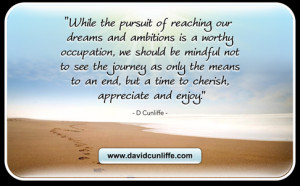Health
and Self Care:
The
concept of health and health practices such as self care are influenced by many
factors such as culture, social and ecological determinants. For example, my earliest memories related to
health and self care is from when I was a little girl and a refugee in
Pakistan. I specifically remember my
cousins (my Mother’s side) making fun of my immediate family’s focus on eating
healthy because my parents were more aware of the concept of health overall. They would taunt us when we went over for
dinners stating “sorry, this dish is not that healthy for you, are you sure you
want to eat it?” This scenario is a
clear illustration of how culture, literacy, social and ecological determinants
influence ones concept of health and self care.
Afghanistan, as a country, is one of the least developed countries in
the world in terms of all the social determinants of health. Financially, it is a poor country where food
is scarce (but everything is organic because Western practices of GMO’s are
nonexistent). The health care system and practices are outdated and
limited. The educational system is
ineffective and nonexistent in most of the country. To top it all off, war is part of its history
and violence a part of everyday life.
So even
within our family unit, what created such a difference related to the concept
of health and self care? I believe it had to do with so many factors. First of all, health is not a forefront
concept in a country where daily survival is a struggle in terms of daily
necessities such as security, shelter, food and water. Among our clan, we were the first family
members to escape Afghanistan to a more secure place and the rest followed us after
many years. My immediate family was exposed
to a different culture and ecological system.
The rest of the clan’s living situation back in Afghanistan continually
degraded exponentially. Their focus was
survival and not health and healthy practices.
In addition, and what I believe to carry a heavier weight was the
literacy levels of my Dad’s family compared to my Mom’s. Even back in Afghanistan, as far back as my
grandparents, my Dad’s side was highly educated. In fact, some were educated outside of
Afghanistan as doctors and nurses in 1980’s.
My parents (with my Dad’s influence on my Mom) were more health
conscious than any of my cousin’s parents on my Mom’s side. In fact, even back in Afghanistan, my parents
always focused on nutrition and healthy eating as much as possible.
Fast forward
to today, my own personal view of health and self care is a sum of my
upbringing as noted in preceding paragraphs, and the journey beyond. Today, what shapes how I define health and self
care practices is influenced by being raised for more than 2/3 of my life in
Canada, practicing as a nurse and nurse educator for more than 15 years, having
a high level of education as evidenced by being enrolled in post graduate
studies, and being more self aware of health overall. Health to me means being whole, not just in
the physical domain, but in emotional and spiritual domains as well. It is not just about eating healthy and exercising;
it is about taking care of my spiritual and emotional well being too. I think of health as a 4 legged pedestal with
physical, emotional, mental and spiritual health forming the four legs with
equal length, width and distance apart, forming a strong base for the
stool. Anytime, there is disequilibrium,
the stool of ‘health’ is no longer sturdy, but shaky and could even fall over
if too skewed. There is a need for balance between the four
domains. Good nutrition and exercise needs to be balanced with social
activities for emotional and mental health as well as spending time alone to connect
to our self to strengthen our spirituality.
Personally, balance between all four spheres of my being is my focus of
self care practices. I work hard to make
sure that in a 24 hour period, I focus equally on activities that benefit all
areas. However, despite my due diligence,
achieving balance is proofing a challenge.
I do better with physical health than in the other spheres. This can be due to my upbringing, the current
focus of Western society on physical health or the social and ecological
determinants that are unique to my entity.
However, I am not the only one struggling with balance in my community as evident by the mental health crises.
This is a city where our obsession with physical health is promoted in every
aspect of society. For example, a lot of
funding is spent on making gyms accessible, putting focus on nutrition and
related research, however, access to mental health resources such as quality counseling
is only available to the privileged with an extended benefit package. In conclusion, just like other health
practices, self care, is a complex phenomenon, unique to everyone and interrelated
with all other social as well as ecological determinants.
